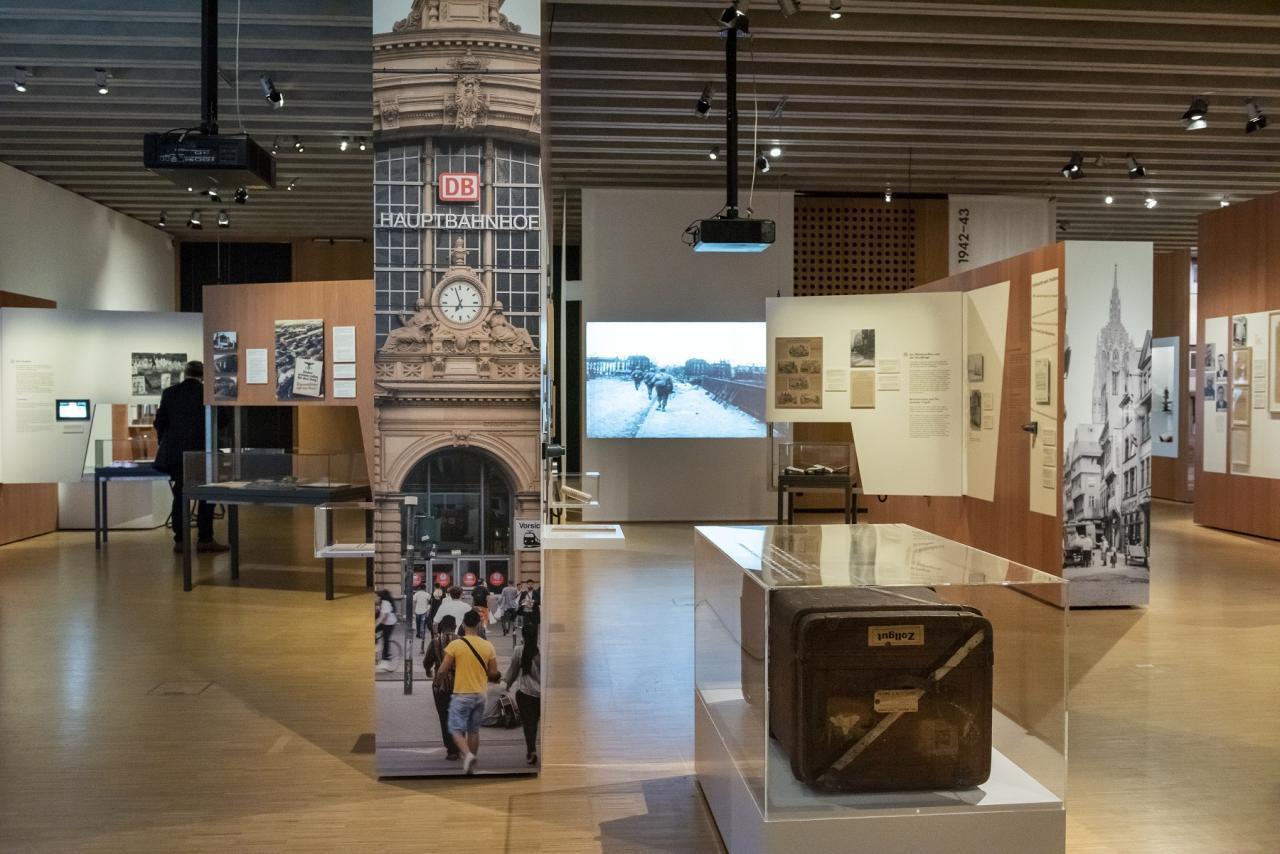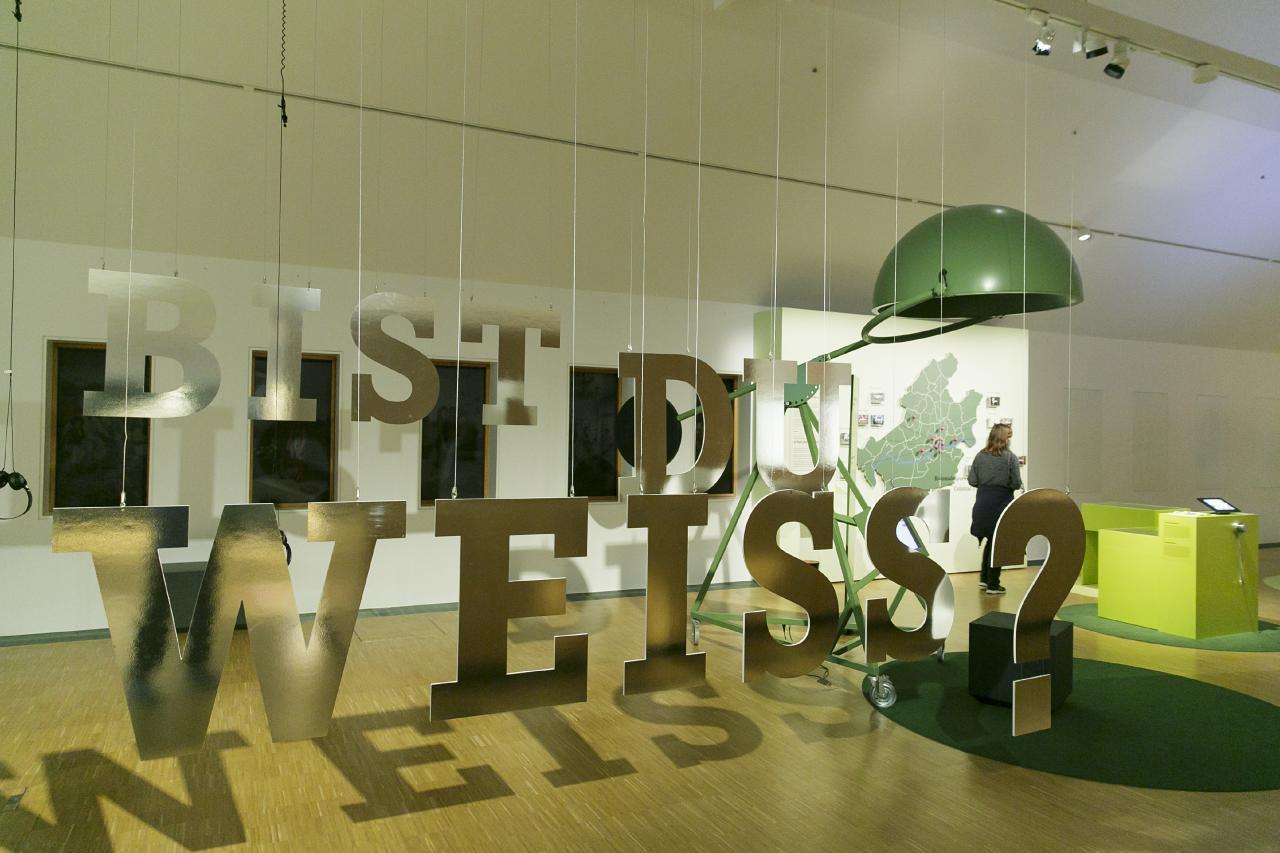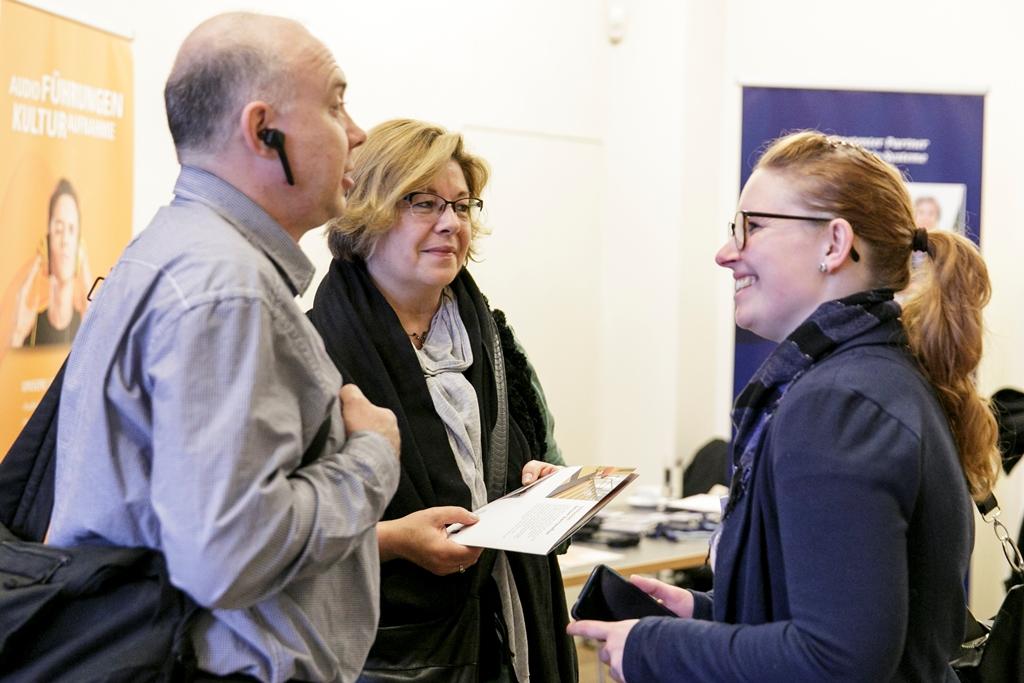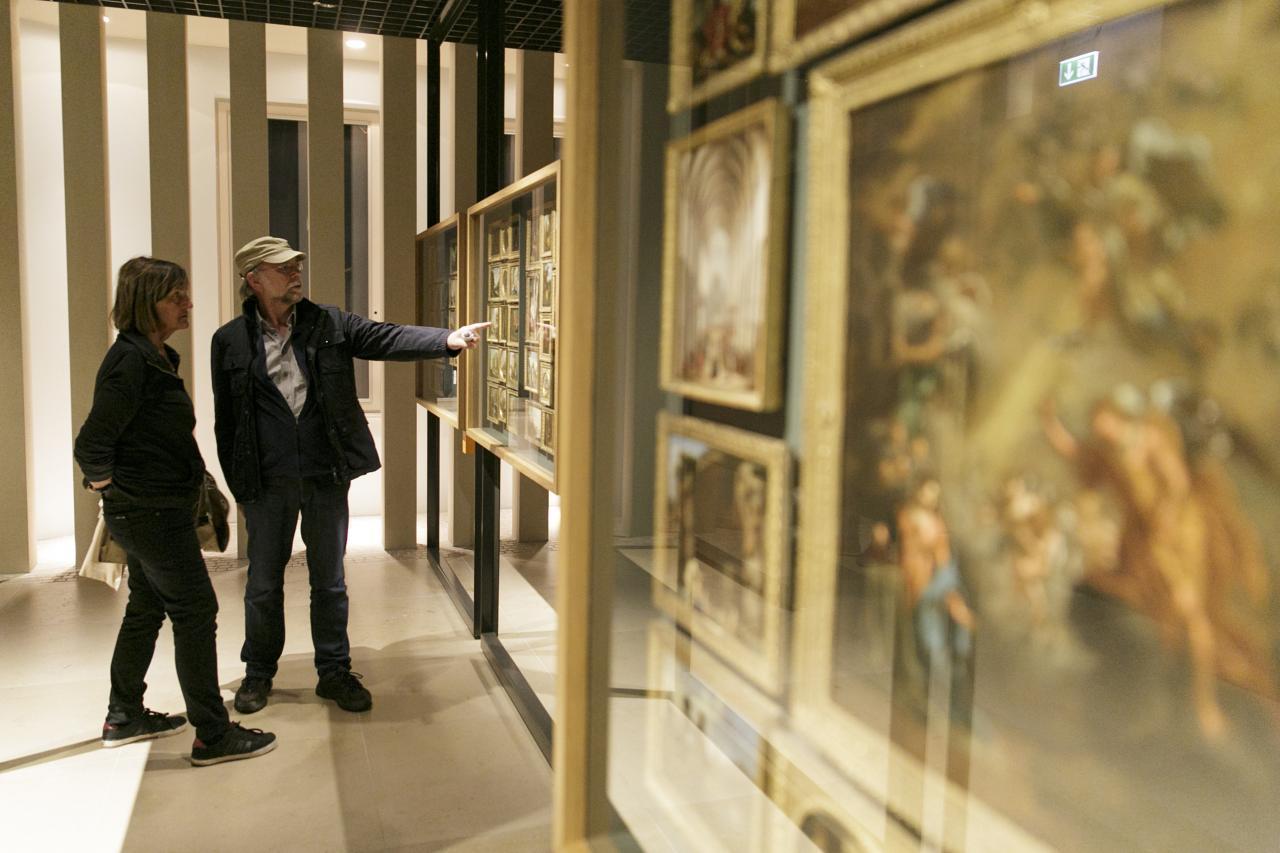Conferences at the HMF
On this page you find an overview of the professional conferences that have taken place at the museum in the past.
Future conferences can be found in our event calendar.

Conference "Frankfurt, a Major City under the Nazis"
In cooperation with the Hessian State Center for Political Education, the Fritz Bauer Institute, the History Department of the Goethe University and the Frankfurt Historical Commission, the Historical Museum Frankfurt invited to a public conference in September 2022.
To understand the history and ideology of the NS in order to resist the promises of right-wing populists and right-wing radicals: This must also be a main goal of historical and political education today. How did Franfurt and its city administration, judiciary, police and university behave under the Nazi regime? What room for maneuver did municipalities have under the Nazi regime and what role did they play in enforcing Nazi policies?
In 2018, the HMF decided to develop a large exhibition project on "Frankfurt and Nazism". Three exhibitions were developed simultaneously and in close relation to each other: In addition to the exhibition in the Young Museum "Nachgefragt", which addresses a young audience from the age of 10, the historical exhibition "Eine Stadt macht mit" (A City Joins In) attempts a comprehensive overall view with pre- and post-history on a large area, while the participatory developed CityLab exhibition "Auf Spurensuche im Heute" (On the search for traces today) was addressed to the numerous citizens with an active interest in remembrance culture.
The conference marked the end of the special exhibition "A City Joins In". You can find more about the exhibitions here, and watch the recording of the conference on YouTube here.

Symposium: What ism? Reflection and Resistance
The conference on February 26 and 27, 2021 was dedicated to new spaces of action and methods to deal with today's racism and diversity of hostility towards people. Where minorities become a majority, there is no longer a majority that explains to a minority who they are and what they are allowed to feel. How do we strengthen ourselves and become allies on the way to also recognize mulitple discriminations and their intersections? What steps are needed to put society and especially its institutions on a path critical of racism? How to strengthen the voices of those affected?
The symposium opened up spaces of thought and reflection for the participants, in which a diverse urban society can be redefined. Different forms of empowerment and power sharing will be discussed and experienced in practice. The targetgroup is people from critical and intersectional fields of work as well as people who (want to) get involved against racism.
The recording of the conference on YouTube can be found here.
The conference program as PDF can be downloaded here.
The exhibition "Racism, Resistance and Empowerment" can be found here.
Dynamics of remembering and forgetting
The exhibition "Forgetting – Why we don't remember everything" makes the manifold dimensions of forgetting visible and interlocks findings from social sciences, cultural history, neuroscience, psychoanalysis and art. The conference on May 23 and 24, 2019, deepened the topics of memory – biography – identity, cultural change of remembering and forgetting, forgetting as repression of the past and dreams in the dialogue of the experts. Lectures of 30 minutes and moderated conversations alternated.
You can find the program here.
You can find more information on the exhibition here.
Frankfurt and Nazism
In preparation for the exhibition on the period from 1933 to 1945 in Frankfurt, the HMF organized the conference "Frankfurt and Nazism" on March 21 and 22, 2019, which brought together scholars and practicioners.
In a total of 16 lectures, they presented current research projects on Frankfurt under National Socialism on the first day and reported on how the challenges facing remembrance of it today are being dealt with elsehere on the second day. The museum, which has been committed to participative mediation not only since its new conception, also incorporates the expectations of Frankfurt's urban society for such an exhibition. At a preliminary meeting, Frankfurt history initiatives and committed individuals sharpened their ideas in the thematic areas of persecutees, topography, resistance, economy and war, and historical culture after 1945. They presented their results at the conference.
The topic met with great interest in the urban society. More than 200 participants attended the event, which was organized by the museum in cooperation with and with the support of the Fritz Bauer Institute and the Hessische Landeszentrale für Politische Bildung. Further cooperation partners were the Institute for Urban History, the Johann Wolfgang Goethe University, the Anne Frank Educational Center and the Jewish Museum Frankfurt.
You can find the entire conference program here.
You can find out more about the exhibition project here.

Action day: Visually impaired at the museum
On the occasion of the Visually Impaired Day 2018 in June 6, the HMF presented its offers for blind and visually impaired visitors together with the Association for the Blind and Visually Impaired in Hesse.
As part of the project "inclusive museum", the museum has developed numerous offers for people with a visual impairment in close coordination with these association. A guidance system through the service and exhibition areas, tactile models, objects to touch and a novel audio-descriptive tour on the museum's multimedia device could be tried out and discussed during an event. After the presentation of the project, the organizers invited to a "round table". There, museum educators from Frankfurt's museums who would like to set out on their own to develop offers for people with visual impairments were able to meet with experts in their own field to exchange ideas.
You can find out more about accessibility at the HMF here.
More about the Day of the Visually Impaired can be found on the website of the German Association for the Blind and Visually Impaired
100 Years of Women's Suffrage: Struggle, Context, Impact
Conference from September 13 to 15, 2017
About 100 years ago, women in Germany participated in political elections for the first time. The conference served not least to support the major special exhibition on women's suffrage in Germany, which was on display at HMF in 2018/19.
Here you can find the program of the conference.
More information about the exhibition can be found here.
Colloquium: Right in the middle – The museum as a house of the city
On Friday, May 17, 2017, the new building of the Historical Museum designed by the Stuttgart office of LRO Architects was handed over to the user. In this context, the public had the opportunitiy to visit the new building for the first time.
On this occasion, the Historical Museum Frankfurt, the BDA Hessen and the City of Frankfurt invited to a colloquium on May 19, 2017 to discuss the developments of the current museum building and its significance for the city and society.
A museum is not a house like any other – it has a special symbolic, representative and public character. What role does architecture play today as a materialization of the museum as an institution for the identity of the city? How can it contribute to being a place for negotiating social issues? How does the museum become a house of the city?
The event kicked off with guided tours of the building. Afterwards, the architects Arno Lederer (LRO Architekten, Stuttgart), Volker Staab (Staab Architekten, Berlin) and Jose Zabbala (addenda architects) gave insight into their work and their position on the question of how a museum becomes a house of the city.
More about the architecture of the HMF can be found here.
Expert Conference Inclusive Museum
The conference "With all senses: the inclusive museum" took place on December 12 and 13, 2016 at the Historical Museum Frankfurt.
The conference brought together experts, innovative companies, representatives of museums and people with disabilities to discuss the new requirements of an inclusive exhibition culture in museums. The event gave impulses for museum management and mediation concepts.
You can view the conference program here.
The conference documentation can be found here.
More information about inclusion at the HMF can be found here.

